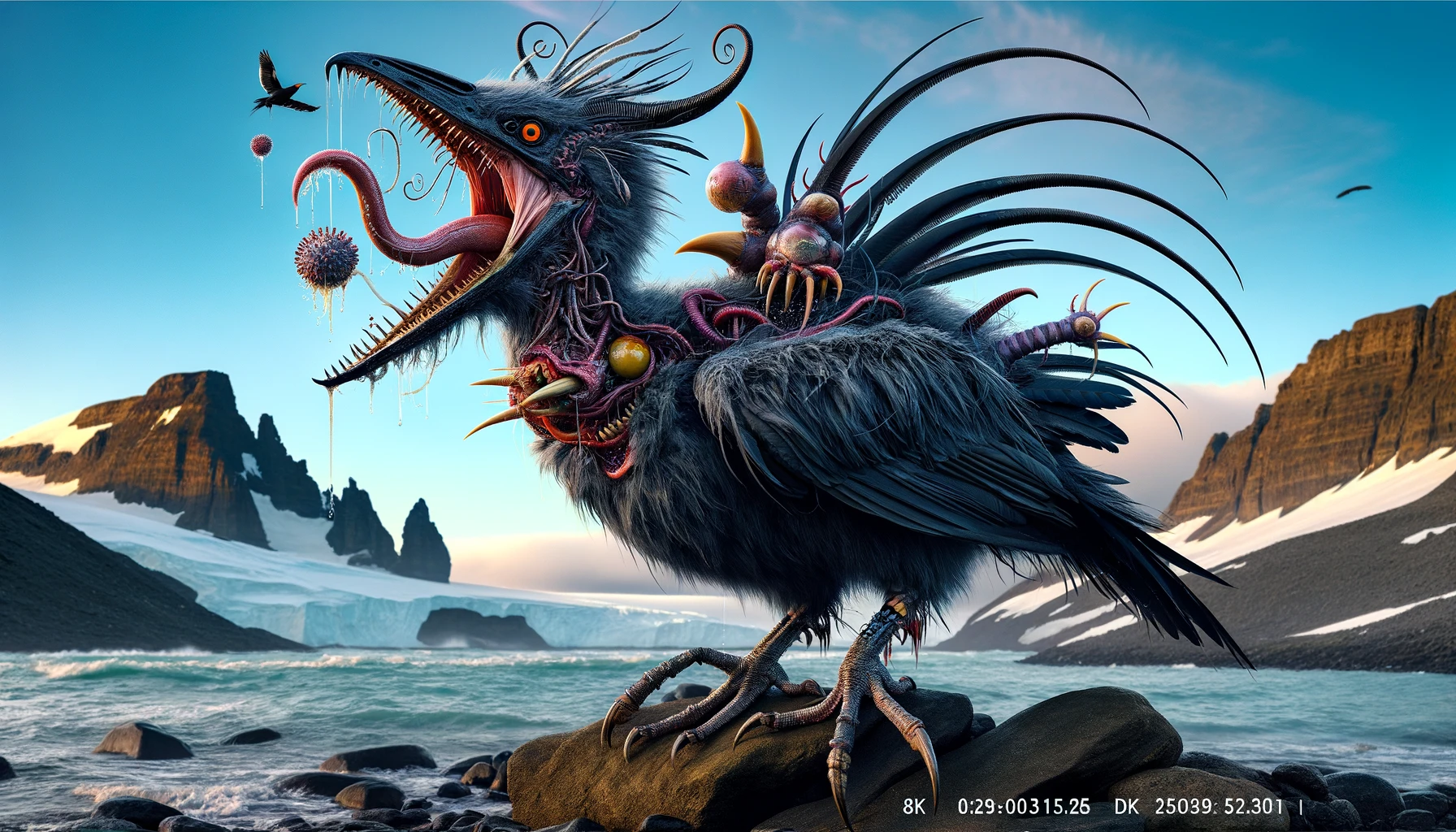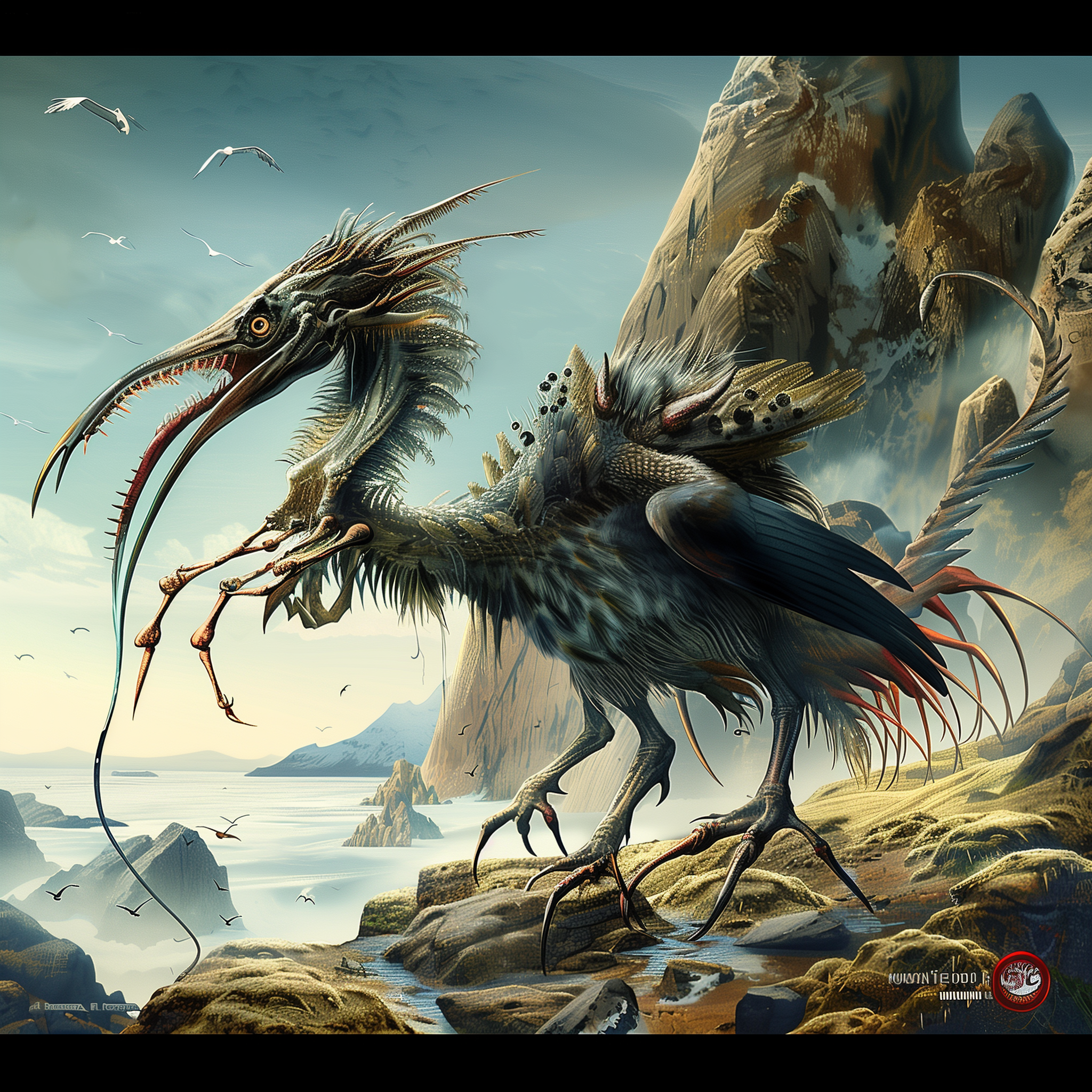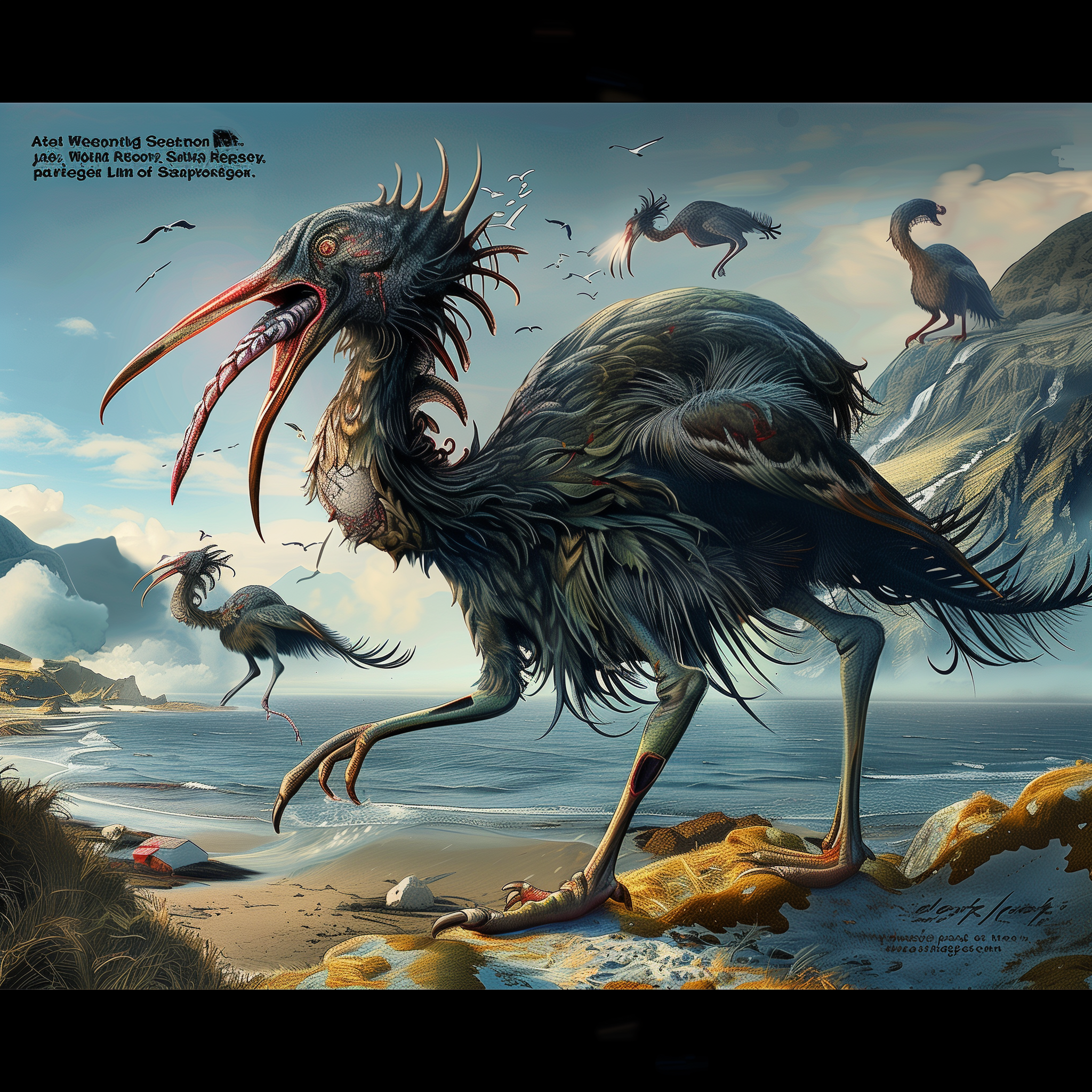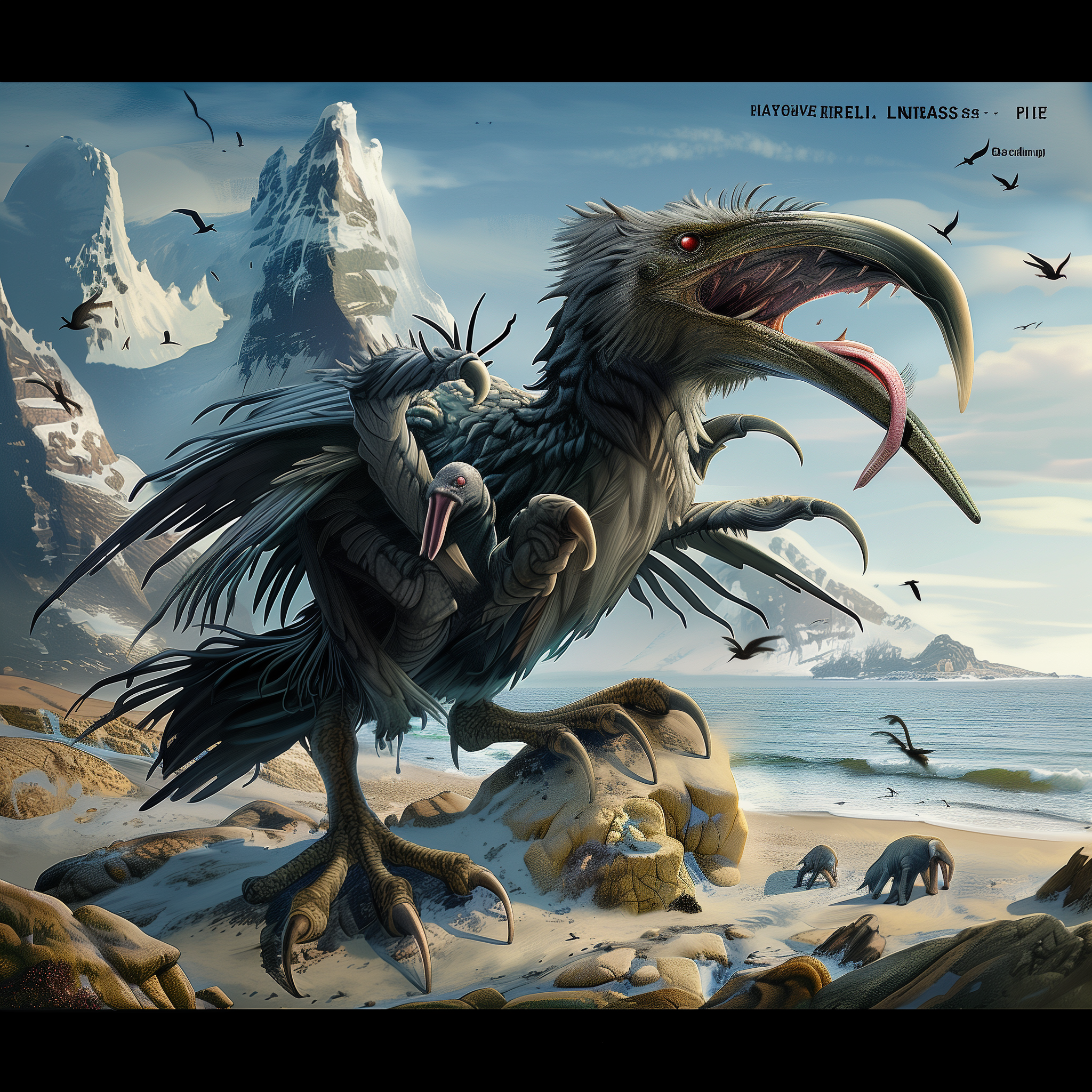They were already a pest for researchers in the 1940s, so five domestic cats were introduced. By the 1970s, there were around 2,000 feral cats on the island, killing half a million seabirds per year. The cats were eliminated by introducing a feline flu virus and hunting down any survivors.
Looks like they started going the Simpsons route but stopped. Who knows what they would have introduced by now?
You know how tigers have patterns on the back of their head and ears to appear bigger than they are?
I think these people might have brought back whatever hunted tigers.Why the hell did they think that the cats would only hunt the pest that they wanted them to hunt?
Humans had to learn that the hard way in multiple places, unfortunately.
I think we need to alter the seabirds’ genome so they are better able to defend themselves. I forsee no potential horrific accidents with this plan.
EDIT: I took the liberty of creating some artist’s renditions.





Send Shawn Woods over there
This is the best summary I could come up with:
CAPE TOWN, South Africa (AP) — Mice accidentally introduced to a remote island near Antarctica 200 years ago are breeding out of control because of climate change, and they are eating seabirds and causing major harm in a special nature reserve with “unique biodiversity.”
The Mouse-Free Marion project — pest control on a grand scale — is seen as critical for the ecology of the uninhabited South African territory and the wider Southern Ocean.
The island is home to globally significant populations of nearly 30 bird species and a rare undisturbed habitat for wandering albatrosses — with their 10-foot wingspan — and many others.
He said their numbers have increased hugely, mainly due to rising temperatures from climate change, which has turned a cold, windswept island into a warmer, drier, more hospitable home.
South Georgia, in the southern Atlantic, was declared rodent-free in 2018 after an eradication, but that was a multi-year project; the one on Marion could be the biggest single intervention.
The eradication project is a partnership between BirdLife South Africa and the national Department of Forestry, Fisheries and the Environment, which designated Marion Island as a special nature reserve with the highest level of environmental protection.
The original article contains 911 words, the summary contains 199 words. Saved 78%. I’m a bot and I’m open source!
Fucking gross.





